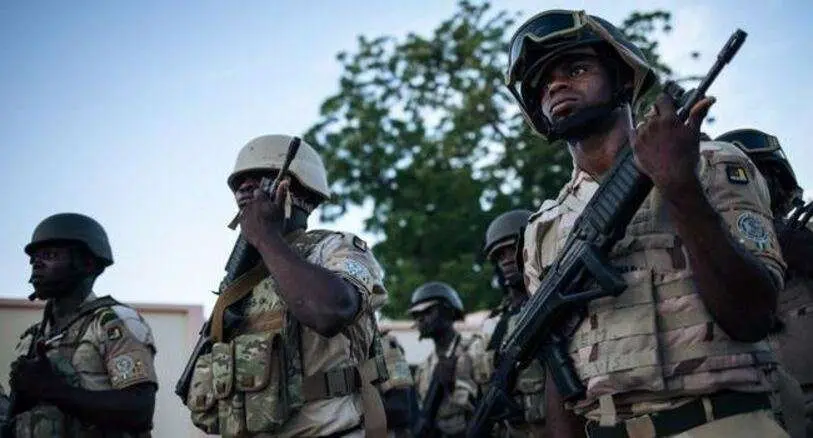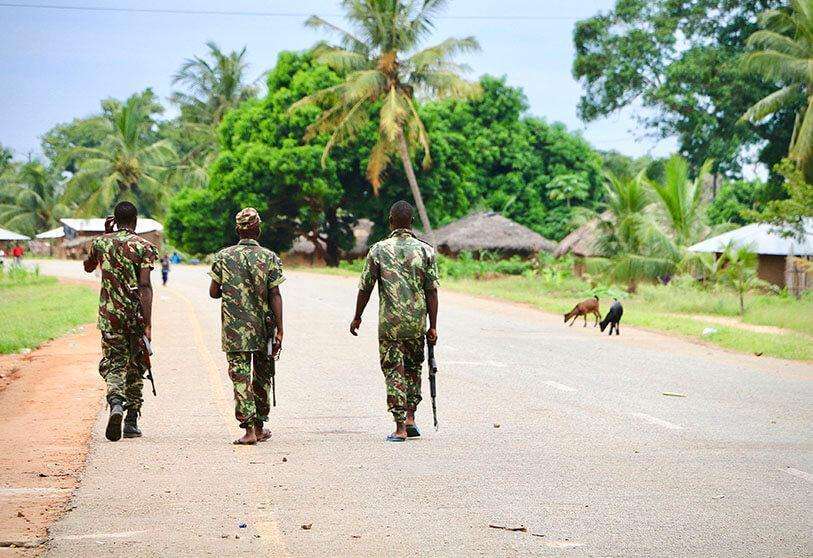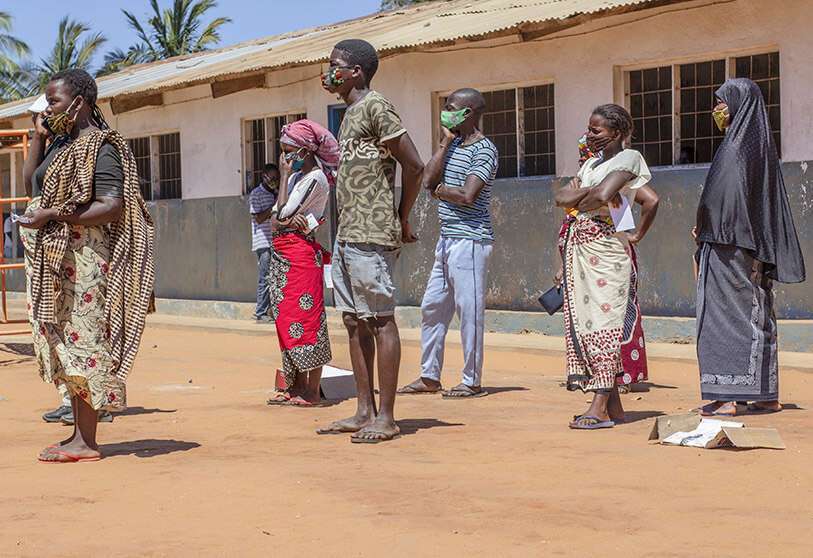Mozambique has become a new jihadist playground

The situation in Mozambique has deteriorated markedly in recent months. The northern part of the country, the Cabo Delgado region, has been an area frequented by drug traffickers, who took advantage of its proximity to the Tanzanian border to make their movements. The presence of gas reserves in this area and this criminal base linked to drug trafficking attracted the interest of jihadism, which found in the instability that already existed in the area a huge support to establish itself.
At least 180 people, including expatriate workers, have been trapped since Wednesday in a hotel in the northern Mozambican city of Palma, which is under siege by jihadist insurgents, workers and security sources said on Friday. The army was trying to evacuate the workers by air to safety from the area, which is home to a giant liquefied natural gas project, according to trapped workers. Insurgents began attacking the coastal town on Wednesday afternoon, prompting terrified residents to flee to neighbouring forests and workers to take refuge in the Amarula Hotel.
"Almost the entire town has been destroyed. Many people have died," one worker said by phone on Friday after being evacuated. However, he did not give details of the victims or their nationalities. The non-governmental organisation (NGO) Human Rights Watch said several people were killed, citing witnesses who "saw bodies in the streets". Among them was at least one South African, Pretoria confirmed.
The circumstances of this evacuation remain unclear. And mobile phone communication is particularly haphazard in the area. A first group of 80 people left the Amarula hotel aboard 17 army trucks, according to a security source involved in the operations. But "the convoy was attacked shortly after leaving the hotel. Several people were killed, most managed to escape," the source said.
The government has confirmed the attack and said security forces launched an offensive to drive the extremists out of the city. The attack came on the day French gas giant Total announced the resumption of construction work on the gas field, which is due to be operational by 2024.
Total is the main investor in the project, with a 26.5% stake. Six other international groups are involved, including Italy's Eni and US-based ExxonMobil. "Almost the entire city has been destroyed. Many people have died," an evacuated worker at the LNG plant said by telephone. He did not give details of the victims or their nationalities.

Wednesday's surprise attack sent hundreds of terrified people fleeing into the surrounding forest, while workers linked to the construction of the gas complex, including foreigners, took refuge inside the nearby construction site but also in Palma's hotel.
Since then, violence has continued to escalate, whether against civilians or the military. Several towns, such as Mocimboa da Praia, have been captured, military enclaves have been attacked, and the support of contractors has been harassed, according to various Russian and South African analyses, with which Mozambique tried to deal with a situation. It has clearly failed to do so.
Mozambique is, according to the latest Global Terrorism Index 2020, the third country where the total number of terrorism victims has risen the most. It is behind only Sri Lanka, whose increase is due to a single terrorist attack, and Burkina Faso, whose situation is due to prolonged terrorist activity.
The figures for 2019, with three times the number of deaths in 2018, are worrying. However, 2020's figures are even worse. As of 31 October, ACLED has recorded the deaths of more than 1,500 people in Mozambique, of which more than 1,200 have occurred in the aforementioned province of Cabo Delgado. This figure is higher than in the previous nine years combined, which has set off alarm bells over fears that it could be a new focus of instability in Africa, like the Lake Chad basin or the three-border area in the Sahel.
The town of Palma, located in the province of Cabo Delgado in northeastern Mozambique and just ten kilometres from the French group Total's gas mega-project, is now in the hands of jihadists who have been attacking it since Wednesday, security sources announced. "Government forces withdrew from Palma" last night, one of these sources told AFP on Saturday 27 March. "Palma is in the hands of the attackers," added another source, who requested anonymity

Projects in the gas-rich area are constantly being held up by Al-Shabaab's bloody and growing operations. The French energy group, which "does not regret any casualties" at the Afungi facility, has taken the decision to "reduce to a strict minimum the number of personnel" at the facility for security reasons. Following the attack, the French oil company announced last night that it was suspending the reactivation of the project and reduced its workforce in the area to a minimum.
The formation, which is unrelated to the eponymous jihadist group in Somalia, has been terrorising northern Mozambique since 2017 and has so far caused thousands of deaths and nearly 700,000 displaced citizens.
The humanitarian crisis in Mozambique is escalating as jihadists burn entire villages, behead people, including minors, and commit other crimes, the UN refugee agency warned on the 22nd of this month.
The conflict has killed at least 2,600 people, more than half of them civilians, according to the NGO ACLED, and forced more than 670,000 people from their homes, according to the UN.
The directors for southern and eastern Africa of seven UN agencies expressed grave alarm at the deteriorating humanitarian and food security situation in northern Mozambique, where there has been an escalation of violence that has displaced hundreds of thousands of people in the Cabo Delgado region.

In a joint statement, the regional officials noted that growing insecurity and poor infrastructure are making it increasingly difficult to reach families who are entirely dependent on humanitarian assistance, amid fears that impending rains and the threat of cyclones could further exacerbate these challenges.
According to UNHCR, the humanitarian situation in northern Mozambique is "desperate". In this country of 30 million people, there are 670,000 displaced people in the Cabo Delgado region alone. And several areas are inaccessible. Most of these refugees are fleeing, mostly on foot, in an attempt to escape the fighters initiated by the Ansar al-Sunna group, which claims affiliation with Daesh. They have no work and little to eat. The region is threatened by cyclones, floods and epidemics, cholera and COVID-19.
Approximately 100,000 internally displaced people have sought safety in and around Pemba in temporary shelters, such as school buildings, or with host families, increasing the city's population by a third. Many of these IDPs lack clean water and are exposed to malaria with little protection while living in overcrowded and unsanitary conditions, increasing the risk of an outbreak of measles, diarrhoea or COVID-19, according to Médecins Sans Frontières.
With no end in sight, the fighting that began in October 2017 has continued to increase in intensity, forcing nearly a fifth of the province's population from their homes and reducing access to care and other services in the area to almost nothing.








